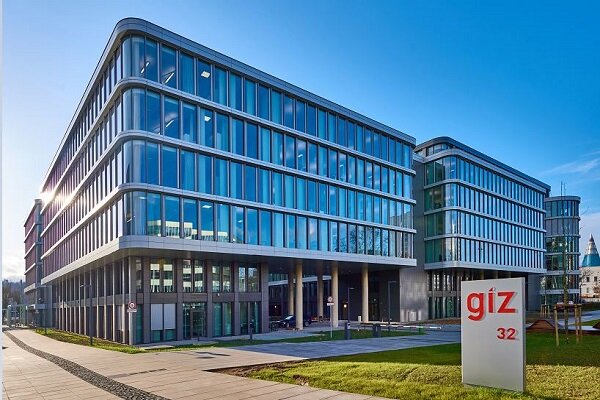GIZ Cooperation Agency: A Helping Hand or Germany’s Soft Power Tool?

The German Agency for International Cooperation (GIZ), Germany’s development aid arm operating in over 120 countries, implements projects aligned with enduring development. However, critics argue these efforts extend beyond technical cooperation, serving as a tool for Germany’s soft power influence. Centralized decision-making in Berlin and the promotion of Western values have allegedly transformed GIZ into a channel for advancing Germany’s geopolitical and economic interests.
Introduction
The German Association for International Cooperation (GIZ) serves as the primary executor of Germany’s development policies across partner nations…
GIZ,a global entity operating in over 120 countries,is responsible for implementing the majority of Germany’s technical cooperation programs. It plays a central role in planning and executing development projects-ranging from vocational training to assisting governments in crisis management.
The German agency for International Cooperation (GIZ) operates under Germany’s Federal Ministry for Economic Cooperation and Development (BMZ) and frequently enough collaborates with institutions like the KfW Development Bank. Officially, its stated mission is to “strengthen capacities, promote sustainable development, and improve governance” in partner countries.
In 2023,GIZ secured nearly €4 billion in funding. the majority-approximately €3.7 billion-came from contracts with German federal ministries and other government entities.
47 million euros have also been allocated by international organizations, including industrial nations, emerging markets, embassies, and financial institutions. GIZ collaborates closely with the German state development bank KfW-while GIZ focuses on ”technical cooperation” (capacity development) projects under Germany’s Federal Ministry for economic cooperation and Development (BMZ), KfW oversees BMZ’s “financial cooperation” initiatives.
Primary and diversified funding sources:
Germany’s Federal ministry for Economic Cooperation and Development (BMZ) remains GIZ’s largest financial provider, contributing approximately 3.3 billion euros-nearly 90% of the agency’s total 2023 budget. Additionally, 420 million euros were secured from other German federal institutions, such as the Federal Surroundings Ministry and Foreign Office.GIZ also operates at the state level within Germany.
International partnerships and private sector involvement:
The agency actively engages in…
GIZ, the German international development agency, operates as a key partner for global institutions like the European Union and UN organizations while also directly contracting services for national governments worldwide.In 2011,GIZ notably assisted Costa Rica in rehabilitating critical road infrastructure damaged by landslides.
official Focus: Technical Cooperation & Equal Partnership
According to OECD reports, Germany channels development projects through GIZ and similar agencies across Africa, West Asia, and South/Southeast Asia-prioritizing education, healthcare, agriculture, climate adaptation, and digital conversion.While these initiatives ostensibly aim for sustainable development goals (SDGs),questions persist about whether program designs genuinely reflect local priorities rather than external agendas.
Private companies and NGOs also leverage GIZ’s technical services for their operations.
Behind the Scenes: Who Benefits from Development?
according to an OECD report, decisions about project types and budgets are primarily made in Berlin by the BMZ (Federal Ministry for Economic Cooperation and Development), with local stakeholders-including national staff-having minimal input. This centralized approach has led to many projects being misaligned with the cultural and religious priorities of host countries.
The gap between decision-makers and implementation sites has fueled critical interpretations. From the perspective of Soft Power Theory, as articulated by joseph Nye, tools like development aid, education, culture, and media allow nations to “make others want what we want” without military coercion.
Through this lens, GIZ (Germany’s development agency) functions not just as an aid organization but as a channel for German “soft influence” within governmental structures of partner nations.
Cultural Engineering: Value Promotion or Western Imposition?
GIZ, the German development agency, implements programs in areas like gender education, environmental policy, and governance that often originate from Western conceptions of development and modernity. These frameworks frequently clash with the diverse cultural, religious, and social contexts of host countries.
The situation invites poststructuralist critique. Scholar Arturo Escobar famously analyzed development as “a Western narrative for organizing the Global south,” arguing it represents not a neutral process but “a method of redefining non-Western societies according to Western imaginaries and needs.” Viewed through this lens, GIZ projects sometimes function as instruments of cultural and institutional redesign rather than purely technical assistance.
Economics, Marketization & German Interests
GIZ’s technical cooperation projects-particularly in vocational training, infrastructure, and economic reforms-often create opportunities for German companies. According to an OECD report, many of these programs are designed in collaboration with Germany’s economic and trade institutions.This overlap between development and commerce raises concerns that development aid may be instrumentalized to open new markets.
Global Competition and the Political Direction of Projects
GIZ operates in geopolitically strategic countries such as Mali, Niger, Afghanistan, Ukraine, and Ethiopia-regions prioritized by major global powers. In such contexts, development projects inevitably become entangled in power rivalries. Organizations like GIZ find themselves positioned to influence the “political and institutional restructuring of host countries,” whether intentionally or not.
Conclusion: Development or Soft Power?
GIZ, Germany’s official development aid arm, plays multiple simultaneous roles: technical partner, foreign policy implementer, value-driven influence tool, and economic facilitator. This complex combination means analyzing it solely based on official statements falls short.
Theories like soft power and critiques of developmentalism reveal that development frequently enough represents another form of domination-a soft yet effective one.
Pouria Lavaei, international Affairs Expert




